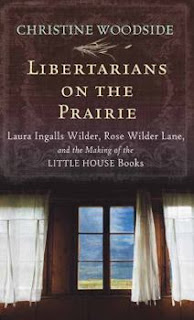So excited that all my new titles from ThriftBooks.com arrived. Check them out.
The friendship between Dorothy Thompson and Rose Wilder Lane began in 1920 in the publicity office of the American Red Cross in Paris and continued until Thompson's death in 1961. Although both women are today remembered primarily for their connections with others --Thompson as the wife of Sinclair Lewis, and Lane as the daughter of Laura Ingalls Wilder, author of the 'Little House' books --each was remarkable in her own right. Both women had a vital engagement with life that led them in fearless pursuit of experience. In 1939, Thompson appeared on the cover of Time, which judged her second only to Eleanor Roosevelt among influential women of the day. Typical of Lane were her travels through the mountains of Albania, the deserts of Syria, and Soviet Georgia in the 1920s and her visit as a journalist to Vietnam in 1965 at the age of seventy-eight. The correspondence of these two talented and articulate women reveals their personal concerns, social ideas, and political/economic philosophies and how they changed over time. Their letters tell the story of the first generation of women to come of age during the twentieth century, as they tried to cope with problems that women still face today. Along with the letters themselves, Holtz has included annotations and footnotes that provide biographical information, as well as explaining personal and topical references. This description may be from another edition of this product.
In the 1880s, when adventure lay in the conquest of the prairies, David Beaton and his bride came to Dakota to claim three hundred acres of grassland. Rose Wilder Lane tells of their struggle to survive with such force that Free Land has become a classic frontier novel. The young couple experiences cyclones, droughts, and blizzards that isolate them for days in their sod shanty and endanger their livestock. The simple pleasures of home cooking, horse trading, and socializing interrupt work, here described in its wealth of variety. In every detail, Free Land comes to life because Lane grew up in the time and place of which she writes. The book embodies her belief that "living is never easy, that all human history is a record of achievement in disaster, and that our great asset is the valor of the American spirit."Like the Beatons of this novel, Rose Wilder Lane's parents homesteaded in Dakota. Lane was a successful novelist and journalist when, in the 1930s, she encouraged and helped her mother, Laura Ingalls Wilder, to write the Little House on the Prairie books that were later dramatized for television.
This myth-busting book finally reveals the true story behind the beloved children's classics. Generations of children have fallen in love with the pioneer saga of the Ingalls family, of Pa and Ma, Laura and her sisters, and their loyal dog, Jack. Laura Ingalls Wilder's Little House books have taught millions of Americans about frontier life, giving inspiration to many and in the process becoming icons of our national identity. Yet few realize that this cherished bestselling series wandered far from the actual history of the Ingalls family and from what Laura herself understood to be central truths about pioneer life. In this groundbreaking narrative of literary detection, Christine Woodside reveals for the first time the full extent of the collaboration between Laura and her daughter, Rose Wilder Lane. Rose hated farming and fled the family homestead as an adolescent, eventually becoming a nationally prominent magazine writer, biographer of Herbert Hoover, and successful novelist, who shared the political values of Ayn Rand and became mentor to Roger Lea MacBride, the second Libertarian presidential candidate. Drawing on original manuscripts and letters, Woodside shows how Rose reshaped her mother's story into a series of heroic tales that rebutted the policies of the New Deal. Their secret collaboration would lead in time to their estrangement. A fascinating look at the relationship between two strong-willed women, Libertarians on the Prairie is also the deconstruction of an American myth.
In Old Home Town, Rose Wilder Lane has recreated small-town society of pre-World War I America with a precise feeling for decorum, dress, and kitchen dialogue. Like Sherwood Anderson in Winesburg, Ohio, she describes a community through the stories of certain memorable citizens. The overlay of nostalgia cannot hide some sharp observations about marriage and women's rights.
Newlyweds Molly and David are only sixteen and eighteen years old when they pack up their wagon and head west across the plains in search of a new homestead. At first their new life is full of promise: The wheat is high, the dugout is warm and cozy, and a new baby is born to share in their happiness. Then disaster strikes, and David must go east for the winter to find work. Molly is left alone with the baby--with nothing but her own courage to face the dangers of the harsh prairie winter.
Ultimately, we all must judge for ourselves how we feel about Wilder and Lane's collaboration. When I began my Laura's Little Houses blog, the first book I read was The Ghost in the Little House, followed by Free Land and Let the Hurricane Roar/Young Pioneers. That left me with the opinion that while Lane may have heavily edited her mother's books, Wilder is the lone author. I doubt Libertarians on the Prairie will alter that opinion, but I also enjoy exploring different points of view and theories. As I read through these books again, my Laura's Little Houses blog is probably where most of the discussion will take place, though more typical reviews should appear here.




























No comments:
Post a Comment